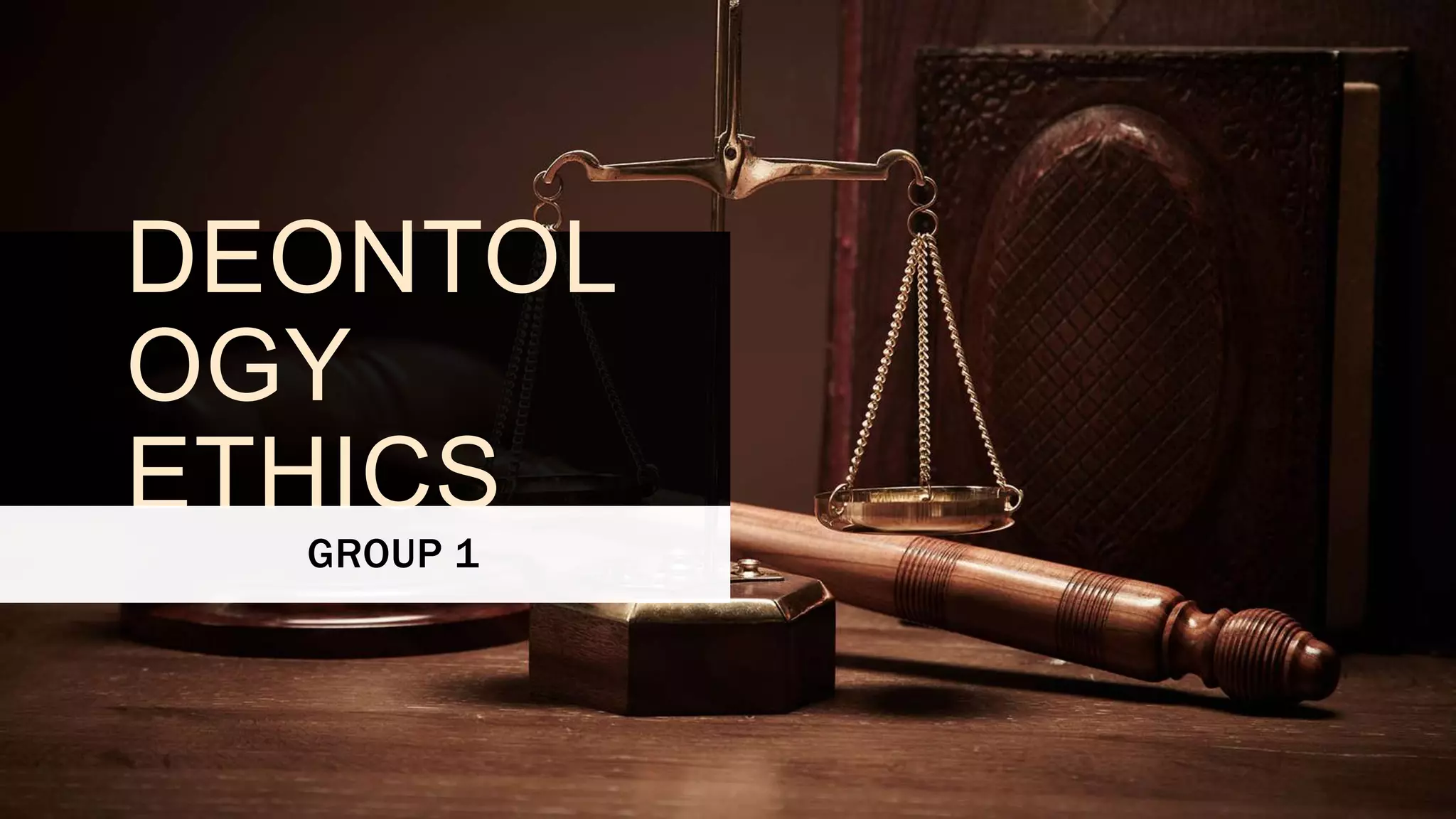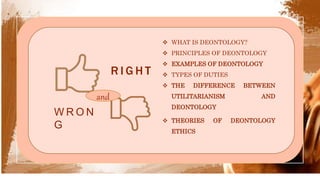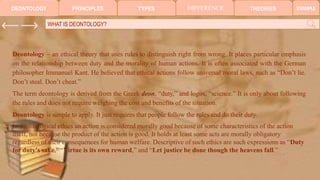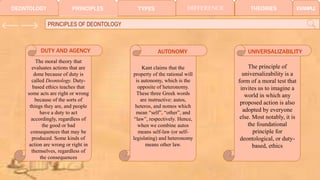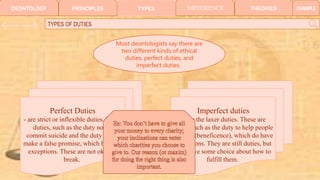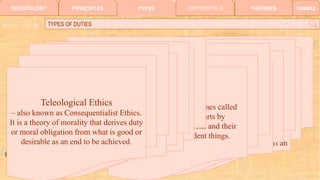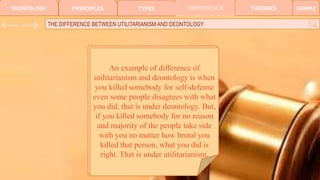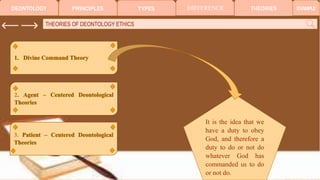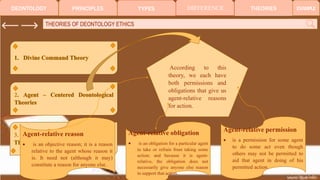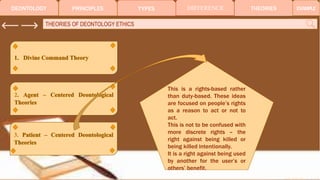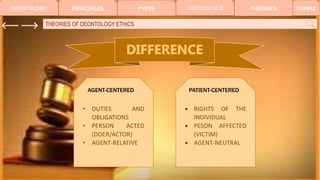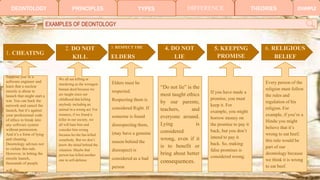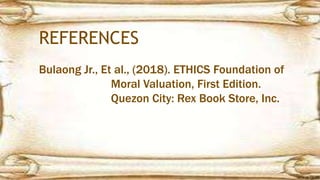This document provides an overview of deontology, a major ethical theory. It begins by defining deontology as an ethical theory that uses rules to determine right and wrong, emphasizing duties over consequences. It then lists the principles of deontology, such as universalizability and autonomy. It distinguishes between perfect and imperfect duties and differentiates deontology from utilitarianism by noting deontology is duty-based while utilitarianism is consequences-based. Finally, it provides examples of deontological rules and theories, such as divine command theory and rights-based ethics.
